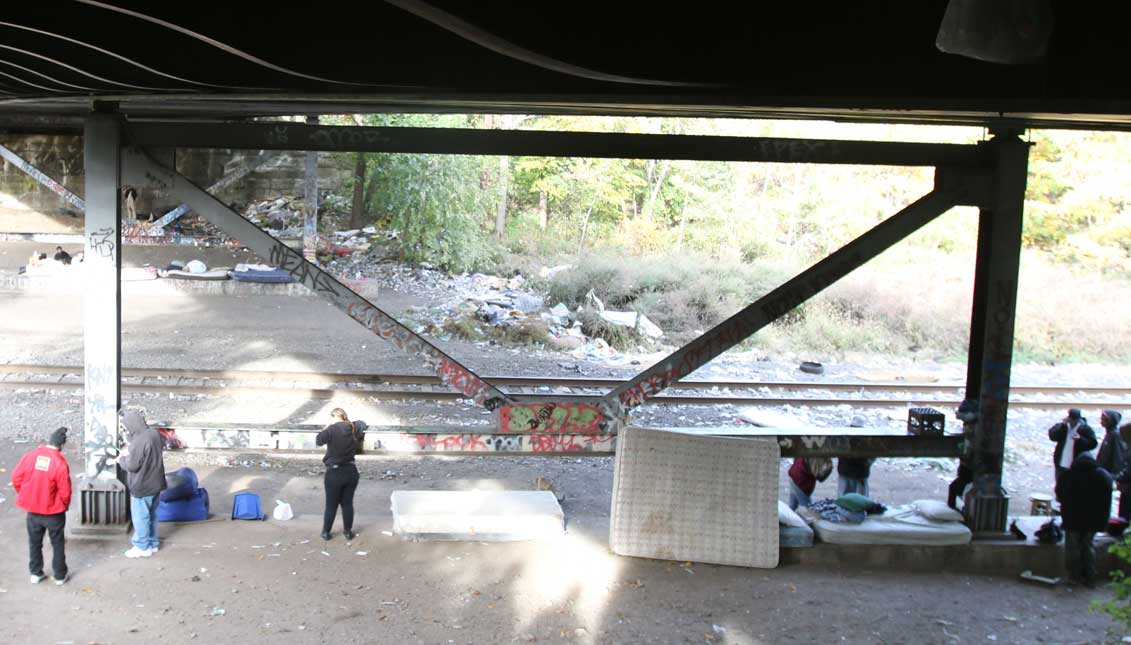
[OP-ED]: Heroin Corridor Cleanup – Is City Hall Addicted to Exclusion?
MORE IN THIS SECTION
Cruz’s firm, Cruz Development, is located a few blocks from that now infamous corridor where an estimated half million discarded drug injection needles litter the ground and a shantytown that houses upwards of one hundred hardcore drug addicts exists.
Although the thirty-year-old Cruz Development has a history of successfully doing the type of cleanup/construction related work that will occur in that heroin corridor – even working on a Conrail project – neither City Hall nor Conrail apparently thought it important to include any minority-owned companies on that project to remove a blight that projects an ugly image of Philadelphia in news media coverage around the world.
There was “no attempt to include small firms” in doing some of the work on that heroin corridor cleanup Cruz said during a recent interview.
Another minority-owned firm excluded from consideration for involvement on that heroin corridor cleanup project is the Industrial Commercial Cleaning Group, a business that currently cleans 42 SEPTA regional stations and 25 NJ Transit stations. Since April, attempts by ICCG for involvement on that cleanup project have encountered the same closed door Cruz encountered.
RELATED CONTENT
Inclusion of minority firms on projects funded with tax dollars is more than a matter of fundamental fairness. There are important intangible benefits in areas like West Kensington where the rate of poverty is nearly 47 percent; unemployment hovers north of 19 percent and alienation from ‘the system’ soars due to legacies of systemic exclusion.
Louis Cruz said his firm “hires from the community” and is invested in the community. “Big companies do not reach into the community,” Cruz noted.
Philadelphia has a despicable history of excluding minority-owned firms from contracting opportunities on public and private sector projects. In February 2001 then City Councilman Angel Ortiz issued a report detailing systemic discrimination endured by minority companies and workers entitled “The Illusion of Inclusion.”
Today, as City Hall (the Mayor and City Council) pledge better minority business/worker inclusion on the City’s upcoming half-billion-dollar “Rebuild” initiative to renovate rec centers and libraries, the City and Conrail signed a heroin corridor cleanup agreement on June 5th that included no specific provision for minority business participation.
Hanford Jones, an expert on minority contracting who works with ICCG, described that June agreement ignoring minority participation as “unfair, unequal and possibly discriminatory” in a letter to a ranking City Councilmember.
That agreement, a spokesperson for the Mayor said, simply addressed how the City and Conrail would divide cleanup work not how Conrail would/should contract its work. Conrail did not respond to requests for comment regarding its minority contracting for that project.
While City officials promise tough enforcement on Rebuild inclusion, the heroin corridor cleanup proclaims classic exclusion.







LEAVE A COMMENT:
Join the discussion! Leave a comment.